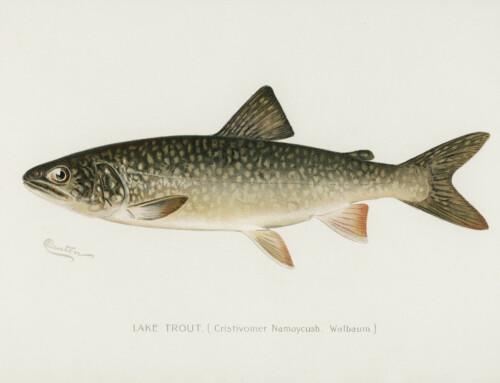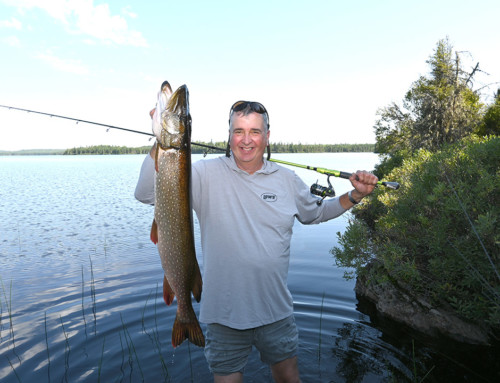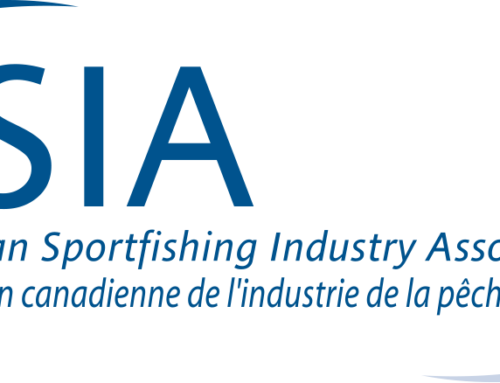Courtesy of Robert Sopuck, MP for Dauphin-Swan River-Neepawa
I am following the comments on my analysis of the Liberal Private Members Bill, C-246, with great interest but so far none of my critics have dissuaded me from my strong view that Bill C-246 poses a grave threat to traditional animal use (hunting, angling, medical research, pet ownership, and livestock husbandry etc) in Canada. Bill C- 246 is most certainly the “thin-edge-of-the-wedge” in terms of advancing a damaging animal rights agenda. And the strident, exaggerated, and somewhat libelous comments of some of the commenters prove me right. They see C-246 as but the first step to the elimination of all animal use. Think I am exaggerating? Just look at the websites of the groups supporting the bill and what they are actually advocating for in the long term. I rest my case.
But there are other, and more erudite posters, such as the thoughtful Gosia Bryja, who sincerely believe that Bill C-246 represents a step forward but that C-246 does not affect traditional animal use. I strongly disagree, but those comments are presented in a lucid and cogent manner.
C-246 basically has 3 parts; the elimination of dog and cat fur in the fur trade, the banning of the importation of shark fins, and the rest of the bill dealing with animal cruelty laws in general. The first 2 are the most straightforward, although not without their problems.
Regarding domestic dog and cat fur, the use of this material is already banned and eliminating any vestiges of the trade in the fur of these species should be quite easy. Having said that, it will be important to use the proper scientific names of these two species so that the rest of the canid and felid species that are legally harvested are not affected. Domestic dogs have been known to cross with wolves and coyotes and have reverted to the wild. These hybrids must remain legal as furbearers. That said, eliminating any use of domestic cats and dogs from the fur trade should not be difficult.
The shark finning issue is a little more difficult, but this is a practice that very few support, including me. That is if it is defined as cutting the fin off a live shark and throwing the meat away. That said there may well be issues from a trade perspective. What if there is a legal, sustainable shark fishery where the shark meat is consumed and the high-value fin is exported as part of that legal fishery? Canada has regulated and sustainable porbeagle and dogfish shark commercial fisheries that supply an export market and, if the meat is used, why shouldn’t the fisherman be able to sell that fin? In fact that fin could be the difference between a profitable day on the water and a financial loss. I do not know if fins are exported from Canada, but assuming that the shark meat is exported I would assume that the fin is as well. Canadian trappers, sealers, forestry workers, and farmers have all been victimized by these non-tariff barriers put in place by our ostensible trading partners, usually at the behest of activist groups in those countries. So if C-246 is narrowly-defined as pertaining to imported shark fins where we know the animal is treated in an inhumane manner than this section of the C-246 could be supported. But this measure must not set a trade precedent that could threaten Canadian natural resource industries. Keep in mind it is impoverished, low income rural communities that are the most affected by these non-tariff barriers.
The animal cruelty sections of C-246 are without a doubt the most threatening to traditional use. Many of the posters are implying that Canada has no animal cruelty laws and C-246 remedies this. That “we,” meaning folks like me and the other traditional animal users groups, should meet the supporters of C-246 halfway and achieve that middle ground. Well, we are already at that middle ground under our current laws. Our current animal cruelty statutes are good, useful, and provide the authorities with all the necessary tools to stop wilful animal cruelty. Period. What animal activists do, and indeed all activists do, is plead that “if we could all come together we can achieve that middle ground.” But history tells us that once that “middle ground” has been achieved, the animal activists pick up the goalposts, move them down the field of the elimination of all animal use, plant them in the ground and say, “let’s start the game again.” Do you think I exaggerate? Well, the first protests about the seal hunt and fur trade were all about the “humaneness” of the hunt and trapping. But once there were veterinary-approved seal hunt and trapping standards in place, the game quickly changed to demanding the end to these activities. And the result was the further degradation of the economies of poor impoverished rural and remote communities. Well, I won’t play that game. The line in the sand is right here and right now. And I will go no further. That is unless we use dispassionate, objective, veterinary-approved and scientifically-proven methods to improve animal welfare. The “excited” comments by some posters (you know who you are) clearly illustrate where they want Canada to go and I will simply not accept their position. And I will continue to strongly oppose C-246.
It is a truism in law that “words count”, especially in legislation. Judges look at bills, assess the wording, and ask themselves “just what did Parliament intend here?” The wording of C-246 is so vague and imprecise that a judge could say, “well, it looks to me that Parliament intended ABC so animal use X must be severely curtailed.” It could be fishing, animal-based medical research, trapping, animal husbandry or any animal use. That is because the animal rights groups, some of whom have budgets in the millions, will be constantly testing the law, striving to move the goal posts. C-246 does not list the exempted activities (e.g angling with a license) but merely talks about “lawful excuse.” But the Ontario SPCA Act specifically lists the exempted activities. And C-246 needs to do the same and for ALL traditional animal uses; not some, but ALL.
Lastly, some of you have noted that I have only responded once to the postings. That is because the comment section is mainly for you and not me. I get my say on this page, my website, in my columns, in reports, in Committee, and in Parliament. Plus I have a staff to assist with all my communication activities. So I will refrain from too much personal participation (although I do love a vigorous debate!) but rest assured that I read every comment. Thank you all for taking the time to participate.
Yours truly,
Robert D. Sopuck, MP
Dauphin-Swan River-Neepawa






As a hunter and fisherman, I agree wholeheartedly with you! This bill would put us on a very slippery slope which we could never recover!
Rob, we met many moons ago when you were in the habitat conservation business in Manitoba and I was doing the same with CWS-HQ. Happy to see that you’re still at it on behalf of all resource users, and note that you’re still more than articulate enough to make your case clearly, objectively and politely. I fully agree with all your comments , share your worries, and encourage you to stay the course. Please keep me abreast of progress on this issue, and continue your good work on behalf of all of us who share your passion for our living world.
I agree with everything you have posted here and fully support you and the direction you propose. Thank you.